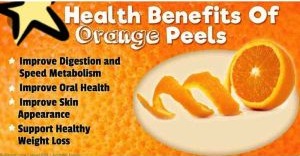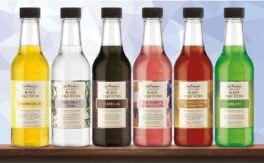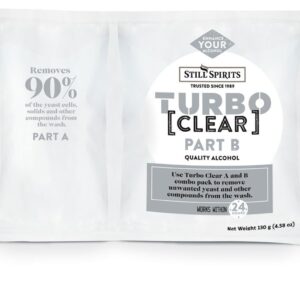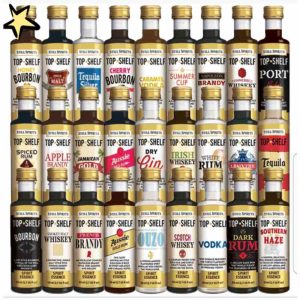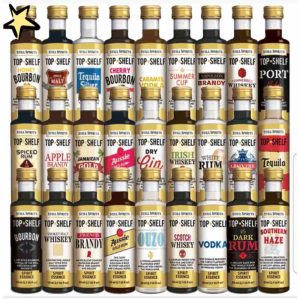

SKU :
Not Available
Still spirits - top shelf flavours 50ml (makes 1.25l)
For more detailed information https://stillspirits.com/pages/instructions">https://stillspirits.com/pages/instructions">https://stillspirits.com/pages/instructions
Each 50ml bottle Makes 1.125L
They're very popular in baking with bakers and in the use of essential oil.
Flavours Available:
Just like yeast, the type of sugar you should use depends on what you want to create. For example, a wash for neutral spirits or gin is commonly made with refined sugars like table sugar (sucrose) or corn sugar (dextrose) because they do not impart flavours, whereas many “craft” spirits are usually made using a specific type of sugar like those from grain, molasses or fruit.
Sucrose (table sugar) is a combination of glucose and fructose that is found in sugarcane and sugar beets which is then refined into table sugar. Because it is a disaccharide (double molecule sugar), yeast must work a little harder to break down the sugar and convert it to alcohol. This can cause a slower ferment time and can also contribute to the production of esters (fusel oils) in the fermentation which can carry through to the final product.
Dextrose is the naturally occurring form of glucose found in, you guessed it, corn (maize). It is processed into a fine white powder and can be found in most homebrew stores. Dextrose is a monosaccharide (a single molecule sugar), making it easier for yeast to ferment than standard table sugar. It produces few off flavours in the fermentation phase, which in turn creates a clean, pure spirit. When making a wash with dextrose, use about 10% more than you would table sugar as it has a higher moisture content.
Fruit contains natural sugars, usually a combination of sucrose, fructose and glucose. If you want to distil a fruit mash fruit, you need to take care to thoroughly clean the fruit prior to fermentation to avoid contamination from bacteria, chemical sprays and wild yeast. You may want to freeze the fruit to break down the cellular structure, followed by heating a mash of fruit and water to around 70°C (160°F) which will assist in killing any remaining bacteria or wild yeast. You will also sometimes need to add additional sugar (dextrose or sucrose will work) to increase the alcohol yield, or to keep the cost of expensive fruit down. It is recommended that you use yeast nutrients during fermentation to assist in the breakdown of the sugar.
Molasses is a dark, viscous by-product of the extraction process of table sugar from sugarcane and sugar beets. During the sugar making process, the juice from the sugar beets and sugarcane is boiled until the sugar crystalises and separates from the liquid – this leftover liquid is molasses. This boiling process is usually completed three times and with each cycle, the leftover molasses contains less sugar, thus molasses can vary in colour and flavour depending on how many boiling cycles have been completed.
Malt Extract is derived from grain (e.g. barley, rye) and water. If you have dabbled in making all-grain beer, you’ll know that the process of making malt extract is similar to the start of a brew day. The grains undergo a mash phase which is where the components of the grain are broken down into fermentable sugar – the resulting liquid is called wort. Once this step is complete and the wort has been filtered, it then undergoes an evaporation phase where 80% of the water content is removed to leave behind a viscous syrup called liquid malt extract (LME). To make dried malt extract (DME), the LME is passed through a centrifuge to remove even more water, leaving behind a powdery substance.
A few other substrates can also be used such as sorghum syrup, agave syrup, honey and even good old-fashioned starch-filled potatoes. You can even distil bad wine, cider or beer!
All these starchy and sugary substrates can be used in distilling for a variety of spirit outcomes. As you did when deciding what yeast to use, you need to think about what your desired outcome is when selecting your sugar source. There are many options for each spirit, but we’ve put together a handy chart to show you which is the best and most appropriate substrate by spirit.
Brewers Direct is proud to offer Still Spirits top shelf at a great price.
| Dimension (L x W x H) | Not Available |
| Weight | Not Available |
| Still Spirits Flavours | Pina Colada Cream, Irish Mint Cream, Macadamia Nut, Mango Liqueur, Marula Cream, Melon Liqueur, Orange Brandy, Orange Truffle Irish Cream, Parfait Amour, Pastis, Peach Schnapps, Pear Schnapps, Irish Cream, Pineapple Schnapps, Rum Liqueur, Red Sambuca, Single Malt Scotch, Skybuie, Strawberry Schnapps, Swiss Chocolate Almond, Triple Sec, White Sambuca, Cinnamon Whiskey, Spiced Whiskey Liqueur, Caramel Vodka, Apple Schnapps, Apricot Brandy, Banana, Distillers conditioner, Schnapps, Butterscotch Cream, Butterscotch Schnapps, Black Sambuca, Blue Curacao, Cafelua, Cappuccino Cream, Amaretto, Caranilla Cream, Candy Shots, Cherry Brandy, Chocolate Cream, Chocolate Mint, Coconut Rum, Coffee Maria, Creme de Cacao, Dry Vermouth, Hazelnut, Hot Cinnamon Schnapps |
Related Products
Dried sweet orange peel
$3.95
Icon liqueurs - ready mix liqueurs
$12.95 - $12.99
Turbo clear
$4.95
Still spirit/ classic / l. q flavours clearance
$3.95 - $29.95

